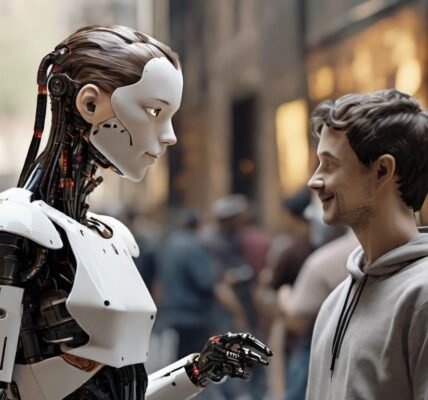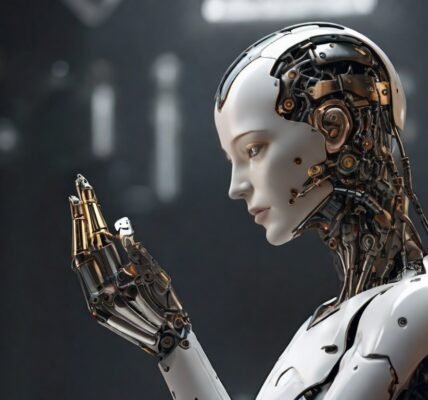Artificial intelligence (AI) is revolutionizing the field of education, transforming the way students learn, teachers teach, and educational institutions operate. With AI technologies becoming increasingly sophisticated, there is growing excitement about the potential of AI to enhance personalized learning, improve educational outcomes, and address challenges in the education sector. In this article, we’ll explore the role of AI in education, its applications, and the benefits it offers to students, educators, and institutions.
Personalized Learning with AI: One of the most significant contributions of AI in education is its ability to personalize learning experiences for individual students. AI-powered adaptive learning platforms analyze student data, including learning styles, strengths, weaknesses, and preferences, to deliver tailored learning content and activities. By adapting to each student’s pace, progress, and learning needs, AI-powered systems ensure that students receive targeted instruction and support, leading to improved engagement, retention, and academic achievement.
Enhanced Student Assessment and Feedback: AI technologies are revolutionizing student assessment and feedback processes, offering more efficient, objective, and actionable insights into student performance. AI-powered assessment tools analyze student responses to quizzes, assignments, and exams, providing immediate feedback, identifying areas for improvement, and generating personalized recommendations for further study. Moreover, AI algorithms can detect patterns in student data to predict performance trends, identify at-risk students, and intervene early to provide additional support and resources.
Smart Content Creation and Curation: AI in education is enabling the creation and curation of smart educational content that is adaptive, interactive, and engaging. AI algorithms analyze educational materials, textbooks, and digital resources to identify relevant content, organize information, and generate personalized learning materials tailored to students’ interests and learning objectives. Additionally, AI-powered content creation tools enable educators to develop interactive simulations, virtual laboratories, and immersive learning experiences that enhance student engagement and understanding.
Intelligent Tutoring Systems: AI-powered intelligent tutoring systems (ITS) provide students with personalized, one-on-one tutoring experiences that adapt to their learning needs and preferences. These systems use natural language processing (NLP) and machine learning algorithms to interact with students, answer questions, and provide guidance on challenging concepts. ITS can also track student progress, monitor performance metrics, and adjust instruction in real time to optimize learning outcomes. By providing individualized support and feedback, ITS help students master difficult subjects and build confidence in their abilities.
Teacher Support and Professional Development: AI technologies are also supporting teachers in their instructional practices and professional development efforts. AI-powered teaching assistants analyze classroom data, student assessments, and teaching methodologies to provide insights and recommendations for improving instructional strategies, classroom management, and student engagement. Additionally, AI-driven professional development platforms offer personalized learning opportunities, resources, and training modules tailored to educators’ needs and interests, empowering them to enhance their teaching skills and stay abreast of the latest educational trends and practices.
AI in education holds immense promise for transforming learning and teaching in the 21st century. By harnessing the power of AI technologies, educators can deliver personalized, engaging, and effective learning experiences that meet the diverse needs of today’s students. From personalized learning and smart content creation to intelligent tutoring systems and teacher support tools, AI is reshaping the landscape of education and unlocking new opportunities for student success, innovation, and lifelong learning. As AI continues to evolve and integrate into educational environments worldwide, the future of education holds tremendous potential for growth, improvement, and advancement.




